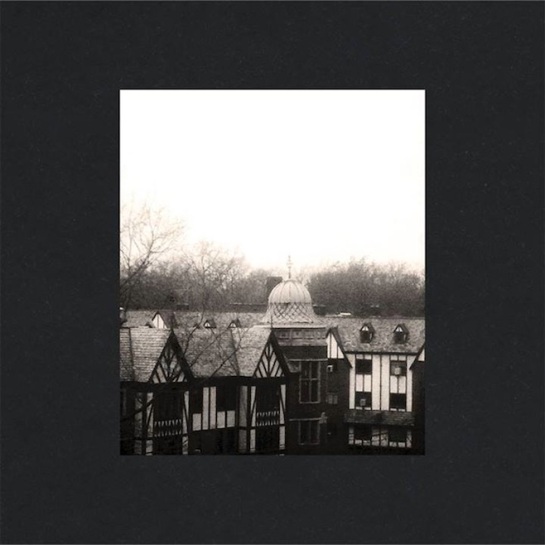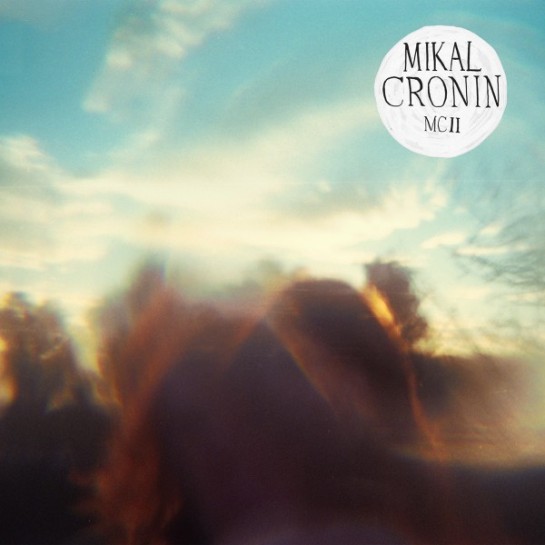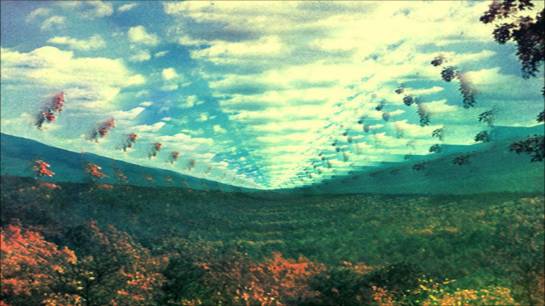
Some Australian Bands You Deserve To Hear
Depending on who you talk to, the Australian music scene is either resoundingly silent in quality and releases, or oversaturated to the point of white noise. Maybe it depends on who your friends are, what they’re listening to, and which radio station you’ve got it tuned to. Either way, it’s hard to deny that there is a tidal wave of releases coming out of Australia at the moment, across so many genres that it makes it hard to find the genuinely interesting releases.
Especially on the rise is underground rock (yes I release the irony of that sentence). With Violent Soho and ‘Covered in Chrome’, their ubiquitous ode to moshing with a righteous and loud chorus while screaming “Hell fuck yeah!”, it seems reminiscent of a highly localised case of The Day Punk Broke, take two. Instead of Nevermind, it’s Hungry Ghost, and now every kid with repressed anything is itching to pick up an instrument and join the angry march into the capital. With the eventual proliferation of guitar music, it’s worth singling out a few of the special groups who are rising above the rapidly growing pile of (crap) cliches, and playing some good music.
Also, these are clearly bands that match my tastes, so please don’t consider it an exclusive or authoritative collection. If you feel outraged I missed anyone, please let me know, I’d love to check them out.
Tame Impala
Let’s start this off with a basic one: if you don’t listen to Tame Impala, and haven’t been living in an igloo kissing people with your nose for the last few years, then you have some serious steps to take in correcting your life. While they’ve been critically acclaimed all over the world, and represent a critical high point for an Australian group, as always, it’s easy to get lost in the hype and hear that instead of the actual music. Not to say that it’s incapable to genuinely just dislike the music, but I’ve found that the more time I devote to Tame Impala, the more I appreciate them. Between Innerspeaker (2010) and Lonerism (2012), there’s a lot to sink your teeth into. I’ve got a bit more to say about them in an upcoming post, so I won’t go into it too much, but I will say that the first time I heard “Apocalypse Dreams” remains one of the most transgressive and memorable moments in my whole time of listening to music.
Standout tracks: ‘Runway, Houses, City, Clouds’, ‘Apocalypse Dreams’, ‘Why Won’t They Talk To Me?’
King Gizzard and the Lizard Wizard
Here’s a group that is quickly on its way to earning to the title of “Most Prolific Band Ever”. As we all know, however, the speed of release is pointless if the quality isn’t up to scratch. That’s why it’s all the more impressive that King Gizz are on their way to releasing albums five and six, with their first LP, 12 Bar Bruise only being released in 2012.
And if this would normally be the paragraph where I describe their music to you in the hopes that some might be interested to YouTube them or something, think again. With the focus of a maid dusting all those little niches and corners, King Gizz are playing as fast and loose with genres as they are with release dates. With important influences like the garage-rock greats (Sonic Youth, Ty Segall, Dinosaur Jr) combined with an individual psychedelic weirdness, King Gizzard are quickly on the rise, and have safely joined the pantheon on Aussie psychedelic greats like Tame Impala and Pond; if Tame Impala are the older and studious older brother, and Pond was the guy you liked getting fucked up with, then King Gizzard would be the zany and kooky drug dealer who lives down the road. And I mean that in only the nicest, most complimentary kind of way. Listen to “Head On/Pill”. You’ll see what I mean.
Standout tracks: ‘Head On/Pill’, ‘High Hopes Low’, ‘God Is Calling Me Back Home’, ‘Float Along-Fill Your Lungs’
DMA’s
And now for something different. With only a single, 5-track EP out earlier this year, DMA’s are already making a lot of noise around the Australian music scene, with the story of their rise already seeping into myth and urban legend; it seems like everyone I meet who’s heard their single “Delete” wants to tell me how insane it is: how they had only played two or three shows before their national tour, how they have a stash of 100 unrecorded songs, how they got signed to I Oh You on these credentials after only a handful of demo’s in an apartment. While other bands might be overshadowed or enslaved to this hype, DMA’s step through it effortlessly, in the most sensible type of way: by making really good music. Being compared to Oasis, and with a sound I’d like to call AusBritPop (you heard it here first), DMA’s first self-titled EP delivered five radio-ready songs designed to make alternative music popular again.
Meeting the media with their striped-Adidas attire, speed-dealers and Instragram accounts dedicated to ibis’, their signing to taste-maker label I Oh You signals this as a band to keep an eye on. With a blistering live set, unique image (graffiti in Good God Small Club’s bathroom stated “DMA’s are not lads”) and highly infectious music, DMA’s could be the band to watch in the future, if only they would start releasing more music.
Standout tracks: ‘Feels Like 37’, ‘Play It Out’, ‘Delete’
Violent Soho
I have a feeling that people are going to take issue with this entry. After all, I just spoke of their ubiquitous single in my introduction. However, as is the case with such a phenomenon, the rest of the band’s work falls by the wayside. Which is entirely bullshit, because Hungry Ghost is the best Australian album I’ve heard since You Am I’s Hi Fi Way. From the unbearably heavy opener “Dope Calypso” to the understated, underrated and devastatingly effective closer “Hungry Ghost”, Violent Soho stepped up from their under-appreciated self-titled release, and really let loose. And while it seemed like it would involve going bigger and louder, Hungry Ghost shined the most in the quieter moments, with tracks like “OK Cathedral”, “Fur Eyes” and “Saramona Said” proving that there was more than met the eye.
Which is my point. We’ve heard “Covered in Chrome” so many times that they’ll be playing it instead of the national anthem at sporting events pretty soon, but to align Violent Soho solely with the power chord driven hammer of that song would be to discount the far more interesting work that they’ve done. And while they shine in those moments, they still manage to satisfy the moshpit with set lists that balance this mix deftly, and I wouldn’t hesitate to say Violent Soho are the best live band in Australia. When I left the Manning Bar after their show a few weeks ago, I was sweaty, bloody, missing my shirt and wallet, and feeling so battered I vomited when I got home. It was the best show I’ve seen in my life.
Standout tracks: Hungry Ghost– the whole album. Seriously.
Adalita
Unlike the previous entries on this list, Adalita isn’t a new artist or new arrival on the scene: it’s the opposite. Adalita, of Magic Dirt fame, is a matriarch of Australian music. In fact, it’s hard not to spend this whole entry telling you to go out and listen to Magic Dirt, because it’s what the good sort of people do. But Magic Dirt seem to have come and gone, with the band declaring themselves on “indefinite hiatus” since the death of Dean Turner, a founding member of the band (and for ten bonus points, he used to manage Violent Soho).
And front-woman and guitarist Adalita could have packed up, called it a day, and still gone down as one of the greats. But obviously she didn’t and here we are: with two fantastic solo albums, a new and more individual sound, and the tradition of high involvement personal live shows.
Her most recent release, All Day Venus (no points for making that joke), was a deserving follow up to her first album, which in itself was unusual for an artist who had spent the majority of her career in the structure of a band. Instead, it feels like a personal imprint of her thoughts and emotions, without the baggage of an overly serious tone. Same for All Day Venus, which is a break-up album that made me laugh out loud a few times, either through her word play or complete
‘Fuck you!” message. I still think the album cover should have been a raised middle-finger; whereas female artists who have recorded break-up albums are unfairly grouped with the Taylor Swift melodramatic neurosis, All Day Venus was equal parts hurt and anger, emotion and thought, looking back and moving forward, with a refreshing lack of sap. So while you’re listening to all the great new bands and artists coming out and around the local scene, don’t forget that they come from a history. With Adalita continuing to make music of this quality, she’s only lifting the bar higher for bands looking to join that history. So long, Australian Idol winners.
Standout tracks: ‘He Wrote’, ‘Blue Sky’, ‘Hot Air’
Sticky Fingers
Simply put, Sticky Fingers are one of Australia’s funnest bands. And I know that’s not a word.
With their sophomore release, Land of Pleasure, only a few weeks old at this point, it’s safe to say that we can only expect great things to come from an already very successful band. Their debut, 2013’s Caress Your Soul, was a modern and seemingly effortless reggae/ska update which was all about the small moments. The prolific “Australia Street” speaks to how well this caught on, with it becoming the group’s most popular song. It took something familiar, and made it interesting, which is the best praise you can give a genre album. Land of Pleasure is a steep departure from this sound, and while it certainly does falter under the pressure of its ambition, it works better than it should, given that it ultimately sounds like Sticky Fingers making a dance record, or a stoned-summer soundtrack. You’ve probably heard “Gold Snafu”. Either way, it reveals a band that isn’t content to stand still, and if they can keep this momentum up in the future, they’re looking to make some promising sounds.
Standout tracks: ‘How To Fly’, ‘Bootleg Rascal’, ‘Laika’, ‘Gold Snafu’
Honourable Mentions
Hey Geronimo
I was torn for a while about switching Sticky Fingers out for Hey Geronimo. The only thing that stopped me was Sticky Finger’s larger discography. And while Hey Geronimo’s debut album is just around the corner, for the moment all we have are their two EPs: Hey Geronimo and Erring on the Side of Awesome. To be fair, these are great releases. Hey Geronimo put the fun back in pop music, more interested in people dancing at their shows than moshing, and a small but incredibly tight catalogue of infuriatingly catchy surf-pop gold. If you’re a regular on Triple J, you’ve probably already heard them. Either way, this group come highly recommended
Standout tracks: Co-op Bookshop, Girl Who Likes Me, Dreamboat Jack
Bin Juice
Having seen them play in Sydney four times this year, and having their debut album, Furious George, in my car for so many months, I feel safe in saying Bin Juice are a great band, with great music, who are on the rise. I’d recommend the next time you see the posters adorning Sydney before an upcoming gig, you should spend the $10 on a ticket, bring some friends, have some drinks, and be prepared to have a great time to some deep funk vibes. Plus you’ll have a new and unheard of band to show your friends, which proves your taste in music is the best. And we all like being the best, so check them out.
Standout tracks: Stella, Super Fantastic Adventure, Do Not Run














